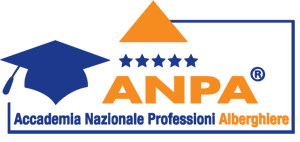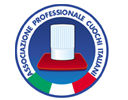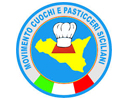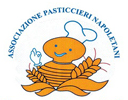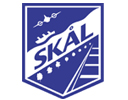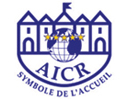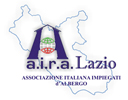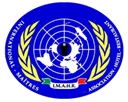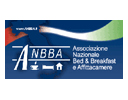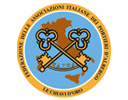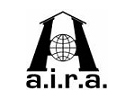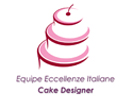The only certified and patented method to train
and work quickly in tourism and catering
Phone: +39 06 997 069 45
Phone: +39 06 997 069 46
Mobile: +39 393 9230 999
TRAINING AREAS |
Chef
-
Chef Basic Level
Description


DESCRIPTION
CHEF BASIC LEVELThe professional course for Chef (basic level) aims to train a technician in the kitchen, able to work in all departments of hotel and restorative companies, through the use of technical skills/manuals and product sufficient to perform practical tasks of medium complexity that they can at the same time ensure the proper production of the meals, the provision of basic products, quality control of materials and on the doses of the food, and the proper use of the equipment business. The profession of the cook, craft evolving, challenging, rewarding and that knows no crisis can, therefore, make it possible to find employment in all of those types of companies which provide for the production and administration of meals, the hotel catering and hospitality in general (hotels, nursing homes, hospitals), public premises (pizzerias, restaurants, trattorias, taverns, pubs, fast food), a complex tourist / reception (camping sites, villages, etc.). The course for Chef (basic level) is aimed at a diverse audience: young and old, Italians and foreigners, men and women, with or without experience in the field and in possession of any level of education, wishing to start this wonderful profession with competence, professionalism and seriousness. The course will take you through the organization of work in a professional kitchen, experience the various stages of food preparation, see up close as a recipe to life, learn about the organization and structure of an industrial kitchen, the role the kitchen staff, learn the proper use of equipment and professional tools, the product characteristics and organoleptic characteristics of the raw materials, processing methods and cutting of raw materials, the main mode of cooking and food storage, the basics of pastry d 'hotel, the health and hygiene regulations concerning the manufacture and handling of food and drinks, the basic principles of the marketing of food and the method of determining the food cost. The course is totally practical, it will take place in the kitchens of prestigious hotels and restaurants partners ANPA sites on national territory and will allow students to use professional equipment and tooling in order to ensure the proper execution of the dishes according to standard International job. The teaching of the courses is entrusted exclusively to Masters and Executive Chef Cooking with proven experience and high professionalism.
Information
INFORMATION
CHEF BASIC LEVELSTART COURSES Every month
DURATION A month and a half of practical training, with the possibility to carry out a subsequent path of stage from 1 to 6 months in company
PARTICIPANTS Max 15
FREQUENCY Three times a week (Monday, Wednesday, Friday)
TIMETABLE 15.00 – 18.00
COST € 1300,00 + VAT 22%
STAGE Allowed students to meet the requirements of Article. 18, paragraph 1, letter d of Law 196/1997 and art. 11 of Legislative Decree 13 August 2011. For the activation of the stage is scheduled payment of € 150.00 + VAT 22 % to answering internships ANPA, only upon verification by the same requirements of the participant the performance of the internship. This fee covers the training period from 3 to 6 months exclusively within a single structure. If the student intends to carry out the training period in most structures, for each activation stage it will be necessary to pay the sum of € 150.00 + VAT 22 %
INSTALLMENTS € 278,00 + 2 installments of € 660,00
€ 278,00 + 12 installments of € 116,50Didactic Program
CHEF BASIC LEVEL
DIDACTICAL SCHEDULE:• The structure of the kitchen, departments and personnel (3 hours)
The kitchen staff and the hierarchy, respect for rules, the importance of the uniform. Personal hygiene. Cooking equipment and using them; utensils in general. Knives: how to handle and how to classify themselves according to their use.
• The cooking methods and the dough base (3 hours)
Roasting, microwave, sautéed, grilled, fried, steamed, boiled. Egg pasta, pasta for pancakes, potato dumplings, pastry, pasta brisa. The uses of the base paste: puff pastry appetizers and pastas stuffed with egg noodles.
• The basic cuts, the funds of the kitchen and sauces (6 hours)
Julienne, Mirepoix, filangè, Brunoise, Diced, Chopping. The funds of the kitchen and the sauces (brown stock; white; the mother sauces: the velvety common, the cream of fish, the fish stock, the brown tied, white sauce, tomato sauce and fresh tomato sauce apart; the basic sauces: salsa supreme, the cream sauce, the sauce demiglace; sauces derived: the white sauces made, the brown sauces made; the cold sauces: pesto alla Genovese; the Mayonnaise, Bisque Fish , onion matured, clarified butter, sauces mothers.
• The first courses (6 hours)
The alimentary pasta: features and classifications according to the different types of flour. Dried pasta and fresh pasta. Impasto techniques and processing of fresh pasta and egg. The various forms of pasta. Soups, soups, broths, the velvety. The risotto: classifications and methods of cooking. Pasta with fish. Pasta with meat. Pasta with vegetables.
• The Fish (6 hours)
Theoretical introduction to the various types of fish (breeding, shellfish, molluscs, fish). Theoretical explanation on anatomical pieces. Cleaning methods, thread and cooking fish. Different cooking fish: cooking roast, grilled, fried, steamed, baked, with salt.
• The Meat (6 hours)
Theoretical introduction to the various types of meat (beef, pork, lamb and poultry). Theoretical explanation on anatomical pieces, on the maturation and cuts. The different types of cooking meat: cooking roast, grilled, fried cold. Meat sautéed, stuffed, boiled, braised, various.
• Basic techniques of baking (3 hours)
The basic grains for bread: wheat and flour. The yeast and major procedures leavening. The water, salt and oil: organoleptic characteristics and their function in the dough.
• The confectionery base (3 hours)
Dough fundamental: the pastry, puff pastry, creams, desserts and puddings.
• The food cost (3 hours)
Principles and techniques to determine the management of revenues and costs of catering.
• Regulatory sanitary/health: The HACCP plan and the principles of the method (8 hours)
• Prevention and Safety (teaching module optional - cost € 120.00 + VAT 22%)
-
Chef Advanced Level
Description
DESCRIPTION
CHEF ADVANCED LEVELThe professional course for Chef (advanced level") organized by ANPA - National Academy Hotel Professions under the high support and collaboration of APCI - Association of Professional Italian Chefs and FIP - Federation of Italian Confectioners, ice cream makers and chocolatiers, is the second step required by the training program and will appeal to those who have already attended the course for Chef (basic level) and achieved its status of "Commis Chef", as well as chefs and operators in the catering sector that intend to update, retrain and improve their knowledge on Italian cuisine. The course, starting with an analysis of the characteristics, nutritional aspects and use in the kitchen of the main raw materials (cereals, legumes, vegetables, mushrooms, fruits, herbs and spices, sweeteners, milk and dairy products, fats and oils, eggs, meat, poultry, sausages, offal, fish, shellfish and crustaceans), will focus on the preparation techniques and food processing plants, meat (red and white) and fish (fresh water and sea water), shellfish, bivalves and crustaceans, for the realization of appetizers, first and second courses. The training will enable the achievement of a degree of technical and professional training that will put students in a position to enable them correctly, in a company dining hotel or business usage, the preparations of the dishes, cooking dishes to propose new or alternative techniques and assume positions of coordination of their subordinates, according to an executive autonomy, but always under the direct supervision of the Executive Chef. The course is totally practical, it will take place in the kitchens of prestigious hotels and restaurants partners ANPA sites on national territory and will allow students to use professional equipment and tooling in order to ensure the proper execution of the dishes according to standard International job. The teaching of the courses is entrusted exclusively to Masters and Executive Chef Cooking with proven experience and high professionalism.
Information
INFORMATION
CHEF ADVANCED LEVELSTART COURSES Every month
DURATION A month and a half of practical training, with the possibility to carry out a subsequent path of stage from 1 to 6 months in company
PARTICIPANTS Max 15
FREQUENCY Three times a week (Monday, Wednesday, Friday)
TIMETABLE 15.00 – 18.00
COST € 1100,00 + VAT 22%
STAGE Allowed students to meet the requirements of Article. 18, paragraph 1, letter d of Law 196/1997 and art. 11 of Legislative Decree 13 August 2011. For the activation of the stage is scheduled payment of € 150.00 + VAT 22 % to answering internships ANPA, only upon verification by the same requirements of the participant the performance of the internship. This fee covers the training period from 3 to 6 months exclusively within a single structure. If the student intends to carry out the training period in most structures, for each activation stage it will be necessary to pay the sum of € 150.00 + VAT 22 %
INSTALLMENTS € 242,00 + 2 installments of € 550,00
€ 242,00 + 12 installments of € 97,50Didactic Program
CHEF ADVANCED LEVEL
DIDACTICAL SCHEDULE:• Features, nutritional aspects, nutritional value and use in the kitchen of the main raw materials
Cereals, legumes, vegetables, mushrooms, fruits, herbs and spices, sweeteners, milk and derivatives, fats and oils, eggs, meat, poultry, sausages, innards , fish, molluscs and crustaceans.
• The main techniques of food preparation plant
How to peel vegetables, cut potatoes (turned sliced along, nuts, special formats) and vegetables (sliced, long, nuts, turned, special cuts)
• The main techniques of preparation of the eggs
Fried eggs, poached, soft-boiled, low temperature, soufflé, in casserole, fried, boiled, scrambled, omelets, pancakes, omelets
• Meat: composition, organoleptic characteristics, altered states, conservation techniques and cooking methods
The composition of the meat: the lean, the fat, the muscular parts, connective tissues, bones, nerves and blood vessels, viscera. Organoleptic characteristics of meat tenderness, color, smell, taste. Altered states of meat: viscosity and surface mucilage, get moldy, lipolysis, colors and smells abnormal, phosphorescence decay, souring. Preservation techniques of meat: refrigeration, freezing, freezing, atmosphere conditioning, acidification, bagging, smoking, drying, salting, preserving in oil. The different types of cooking meat: roasting, baked, grilled, steamed, grilled, skewered, in a frying pan and casserole, fried. Roasts: temperature and cooking time, browning and rest. The crudity of meat. The broth of meat, boiled and braised.
• Beef: types, cutting processing techniques
Veal, beef, beef, bull, the bull, the cow. The cuts from the forequarter: neck, real fesone shoulder, priest's hat, spindle, embryo, costs of the cross, biancostato, brisket, bow. The hindquarter cuts: sirloin (or roast beef), filet, tail, pink, chump, half a slice of walnut, spinach, topside, armhole, silverside, ribs, veal, sottofesa. Preparation of some recipes.
• The pig meat: types, cutting and processing techniques
II cuts of pork: nose (or head), shoulders, legs, loin, loin, tenderloin, ribs, bacon, lard, pigtail pillow. Preparation of some recipes.
• The sheep and goat: types, cutting and processing techniques
The lamb (or lamb), the kid and the white lamb (or lamb), sheep and goats adults. The cuts sheepmeat: neck, shoulders, legs, loin, saddle, leg. Preparation of some recipes.
• White meat: chicken, turkey, rabbit
Poultry: chicken, hen, capon, turkey. The rabbit. Offal: the heart, the liver, kidneys, tongue, brain, glands, paws. Preparation of some recipes.
• The fish and fish products: classification and processing techniques and cooking
Classification and characteristics of the various types of fish: the freshwater fish, saltwater fish, blue fish, crustaceans, shellfish, seafood. Methods and criteria for the selection and evaluation of the freshness of fish products: appearance, status, odor. Altered states of fish: get moldy, dehydration, rancidity, rust staining, discoloration, altered taste, woodworm, chilling, rot, crystallization, softening, staining. Cleaning techniques, thread and cooking fish. The different techniques of cooking fish: roast, grilled, fried, steamed, baked, salted, baked. The raw fish. Techniques and times of marinating and smoking fish. Techniques of fish conservation: refrigeration, freezing, freezing, drying, salting, smoking, pickling, heat treatment.
• The saltwater fish and oily fish
Types, carattestiche, nutritional and organoleptic. Preparation of some recipes.
• The freshwater fish
Types, carattestiche, nutritional and organoleptic. Preparation of some recipes.
• Shellfish, mulluschi and seafood
Nutritional and organoleptic aspects. Cleaning techniques, processing and cooking. Preparation of some recipes. -
Chef Specialist Level
Description
DESCRIPTION
CHEF SPECIALIST LEVELThe professional course for Chef of Hotel (specialist level) organized by ANPA - National Academy Hotel Professions under the high support and collaboration of APCI - Association of Professional Italian Chefs, FIP - Federation of Italian pastries, ice cream and chocolate, is the third step required by the training program and will appeal to those who have already attended the first two levels of the Course for Chef (basic and advanced) and earned its title of " Sous - Chef " as well as a chef and restaurant sector operators wishing refresh, we retrain and improve their knowledge on management and organizational aspects of the kitchen and the restaurant department, and also have expertise on the design of the menu and basic knowledge of wine tasting and food pairing . The course, starting from the supervision of supply of food and beverage products, will deepen the analysis, management and cost control in catering, inventory management, bookkeeping, the Food Cost, the Analysis Report, the organization and management of the human resources department of the kitchen, to the relationships with suppliers and customers and the definition of lines food and wine company. The student will in particular be able to define and plan the composition of the menu and the wine list for the restaurant A la Carte and banquets, as well as to know the basic rules of the organization of the restaurant and styles of service (buffet, service appetizers, soups service at table service guéridon vale, English, Italian, French, self-service). The training will enable the achievement of a degree of technical and professional training that will put students in a position to carry out properly, in a company dining hotel or business usage, control functions of plants and offices, and general coordination of the Brigade of organizational and managerial responsibilities, alongside to executives and managers of restorative company (responsible for restaurant, Food & Beverage Manager). The course, theoretical and practical, will take place in the kitchens of prestigious hotels and restaurants partners ANPA sites on national territory and will allow students to use equipment and tooling professional kitchen and dining, in order to equip professional standards of international work. The teaching of the courses is entrusted exclusively to Executive Chef, Food & Beverage Manager, Maître Sommelier and proven experience and high professionalism.
Information
DESCRIPTION
CHEF SPECIALIST LEVELSTART COURSES Every month
DURATION 18 hours of practical training, with the possibility to carry out a subsequent path of stage from 1 to 6 months in company
PARTICIPANTS Max 15
FREQUENCY Three times a week (Monday, Wednesday, Friday)
TIMETABLE 15.00 – 18.00
COST € 600,00 + VAT 22%
STAGE Allowed students to meet the requirements of Article. 18, paragraph 1, letter d of Law 196/1997 and art. 11 of Legislative Decree 13 August 2011. For the activation of the stage is scheduled payment of € 150,00 + VAT 22 % to answering internships ANPA, only upon verification by the same requirements of the participant the performance of the internship. This fee covers the training period from 3 to 6 months exclusively within a single structure. If the student intends to carry out the training period in most structures, for each activation stage it will be necessary to pay the sum of € 150,00 + VAT 22 %
INSTALLMENTS € 232,00 + 1 installment of € 500,00
Didactic Program
CHEF SPECIALIST LEVEL
DIDACTICAL SCHEDULE:• Marketing of food and the composition of the menu
The role of marketing in catering; the functions of the Management; marketing planning and evaluation of results; the marketing mix for companies of Catering; the life cycle of the product for companies catering; the behavioral characteristics of consumers; techniques to determine the degree of customer satisfaction; techniques of composing a balanced menu; composition techniques and pricing, stages of cost of commodities; preserve crops and production systems; the life cycle of the product in restaurants; the positioning of the restaurant and the quality indicators; the benchmarking competition.
• Analysis and cost management in catering
The operational management of the Food Cost of food; the configuration of costs and revenues; planning, monitoring, analysis and corrective action; the evaluation of the target; factors accounting; allocation of costs and revenues; inventory management; bookkeeping; controllable and uncontrollable factors; the Food Cost Analysis Report; the Weekly Report and midweek; the trend graph of the monthly report; the total sales and cost first; the graphic trend of costs and revenues; total quality in services; the analysis of supply and demand; competitive analysis.
• Composition of wine and food matching techniques/wine
The organization and the management of the cellar; the overall planning of the purchases; the definition of the wine list; choosing and serving wine at the exercise restorative; the selection of the producers; verification of the quality of batches of wine offerings, delivery times, prices and terms of payment; updating and verification of stocks and the "register of the basement"; organoleptic analysis and tasting techniques; evolution, changes, defects and diseases of wine; the Enography, national and foreign; the fundamental principles of matching food and wine; service, bottles and glasses.
• The mise en place, the organization of the restaurant and the techniques of communication with customers
The brigade of room: hierarchies, roles and relationships between the individual components; the decor of the dining room; organization and styles of service: buffet, service appetizers, soups service at table service guéridon vale, English, Italian, French, self-service; equipment and tooling of the breakfast room and restaurant; setting up a buffet; the organization of the service and reception techniques;
• Prevention and Safety (teaching module optional - cost € 120.00 + VAT 22%)


